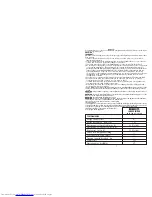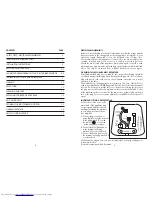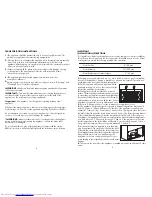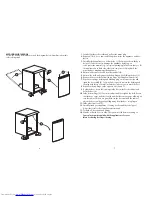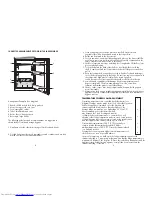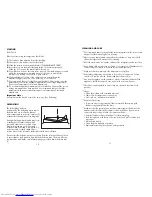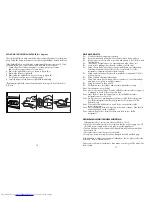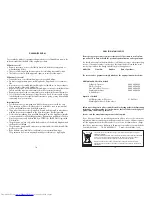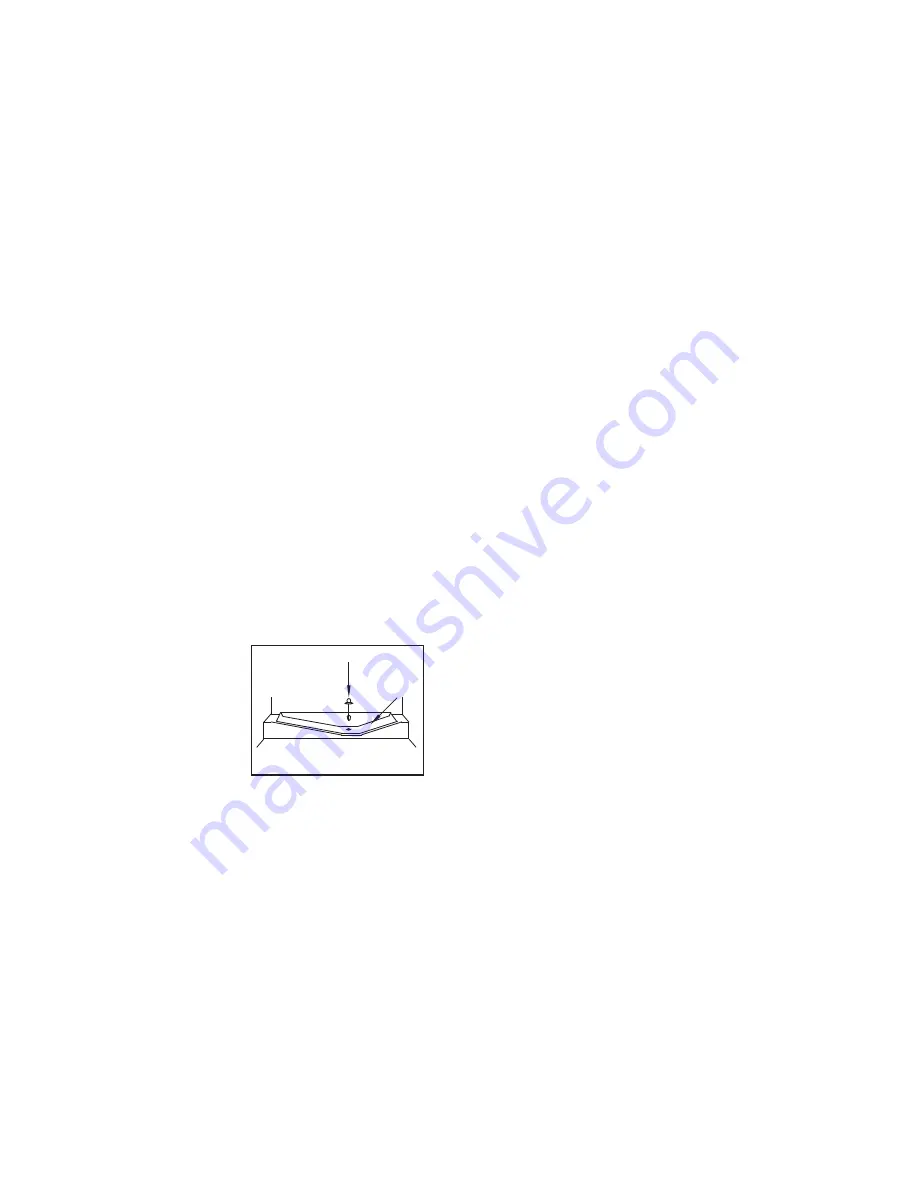
STARTING
Final Check
Before you start using the refrigerator check that:
1. The feet have been adjusted for perfect levelling.
2. The interior is dry and air can circulate freely.
3. Clean the interior as recommended under "CLEANING AND CARE."
4. Insert the plug into the wall socket and switch on the electricity supply.
When the door is open the interior light will come on.
5. You will hear a noise as the compressor starts up. The liquid and gases sealed
within the refrigeration system may also give rise to noise, whether the
compressor is running or not which is quite normal.
6. Slight undulation of the top of the cabinet is quite normal due to the
manufacturing process used, so do not worry, it is not a defect.
7. We recommend that you set the thermostat knob at 3 (three) and monitor the
temperature to ensure the appliance maintains desired storage temperatures
(See section Temperature Control and Adjustment).
8. Do not load the appliance immediately it is switched on. Wait until the correct
storage temperature has been reached. We recommend that you check the
temperature with an accurate thermometer (see; Temperature Control and
Adjustment).
Important Note :
Ice formation at the back is normal, do not worry. (See Defrosting)
DEFROSTING
The larder fridge defrosts
automatically. The defrosting water runs to
the drain tube via a collection channel
and is evaporated in a special container (1)
at the back of the appliance (see diagram).
During defrosting water droplets may form
at the back of the larder fridge where
concealed evaporator is located. Some
droplets may remain on the liner and
refreeze when defrosting is completed. Do
not use pointed or sharp edged objects
such as knives, forks to remove the droplets which have refreezed.
If at any time the defrost water does not drain from the collection channel, check
to ensure that no food particles have blocked the drain tube. The drain tube can
be cleared by pushing the special plastic plunger provided down the drain tube
(2).
1
2
10
CLEANING AND CARE
** We recommend that you switch off the larder refrigerator at the socket outlet
and pull out the mains plug before cleaning.
** Never use any sharp instruments or abrasive substances, soap, household
cleaner, detergent and wax polish for cleaning.
** Use luke warm water to clean the cabinet of the refrigerator and wipe it dry.
** Use a damp cloth wrung out in a solution of one teaspoon of bicarbonate of
soda to one pint of water to clean the interior and wipe it dry.
** Make sure that no water enters the temperature control box.
** If the larder refrigerator is not going to be used for a long period of time
switch it off, remove all food, clean it and leave the door ajar.
** Any dust that gathers on the condenser, which is located at the back of the
appliance, should be removed once a year with a vacuum cleaner.
** Check door seals regularly to ensure they are clean and free from food
particles.
** Never :
• Clean the worktop with unsuitable material;
• Subject it to hot temperatures in any way,
• Scour, rub etc., with abrasive material.
** Removal of door tray :
• To remove a door tray, remove all the contents and then simply push
the door tray upwards from the base.
** Make sure that the special plastic container (drain tray) at the back of the
appliance which collects defrost water is clean at all times. If you want to
remove the tray to clean it follow the instructions below :
• Switch off at the socket outlet and pull out the mains plug
• Push the lug down with the tip of a screw driver and pull out with a jerk
movement
• Lift the drain tray up
• Clean the drain tray and wipe it dry
• Reassemble reversing the sequence and operations
11


